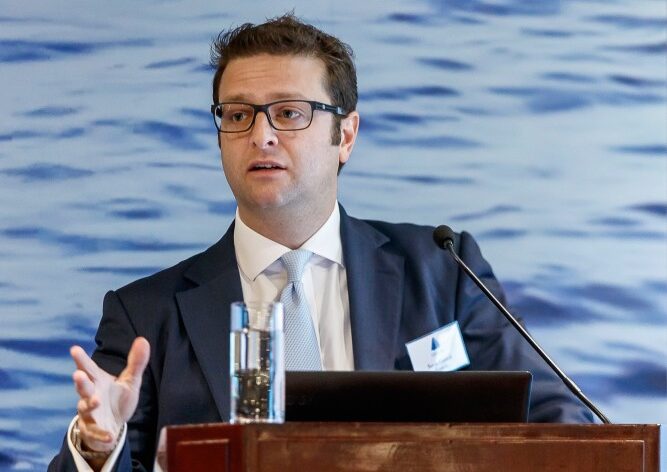
Tonnage shortages won’t suddenly disappear if the world goes back to normal after the pandemic, says Burak Cetinok, head of research at Arrow Shipbroking in London. However, new environmental regulation will aggravate a two-tier market, the trained economist and engineer explains.
The pandemic and its socio-economic effects are caus[ds_preview]ing turmoil in most shipping segments. For some (containers) it turns out favourable, for others less so (tankers). How quickly will market conditions readjust if corona gets brought under control?
Burak Cetinok: I don’t expect abrupt changes in the market in the second half – rather a gradual stabilisation. Containers benefited from surging pandemic-related exports last year. Demand for stay-at-home goods and PPE is likely to ease as economies reopen. However, general consumer goods demand is likely to revive, with the latter effect far outweighing the former. I also expect congestion to persist, increasing inefficiencies and keeping fleet utilisation high.
With Chinese demand at multi-year highs and the rest of the world coming back to life, I expect global dry bulk demand to remain strong. Coupled with slowing fleet growth, dry bulk earnings should remain firm for the rest of the year.
The outlook for oil demand is more uncertain. Transport demand is key to recovery but with restricted international travel we expect jet fuel demand to lag and be the main drag. Hence a recovery in tanker demand is likely to be gradual and uneven.
Shipping is just emerging from a decade of extreme distress (post-Lehman), with buying interest for vessels exploding recently. Are investors right to assume today is the start of a sustained boom or even super-cycle?
Cetinok: I think an extended period of strong demand is warranted, supporting shipping in the medium term. But a »super-cycle« like the one we saw in the last decade? Unlikely!
Admittedly, some key ingredients are in place: China’s commodity-intensive stimulus, western governments boosting fiscal spending, tonnage supply looking favourable in most sectors. Some things are different, though. China is at a different stage of development. Today its debt levels are high and policymakers acknowledge that a more careful approach is needed. Back in 2008–09, debt levels were low and there was more scope to ramp-up debt for a significant build-out of housing and infrastructure in China.
Decarbonisation is now an imperative. How will the IMO strategy for reduction of carbon emission impact supply/demand over the coming years? How much of a factor is it?
Cetinok: Environmental regulation will have a profound impact. Lack of commercially viable, compliant technologies is likely to keep a lid on newbuilding investments in the near term, but the global fleet continues to age. This may tighten the supply-demand balance in the medium-term. The most immediate challenge is the upcoming EEXI regulations.
While it is difficult to assess its impact on the freight market accurately at this stage, it will almost certainly create a two-tier market. Younger, more efficient ships will need to reduce main engine power (therefore speed) less than older vessels. Charterers will probably be willing to pay a premium for younger faster vessels which they can speed up or slow down as necessary. Older, heavy-consuming ships will be disadvantaged, some will have to retire early as it won’t be commercially viable to operate them under the new rules. (mph)



















